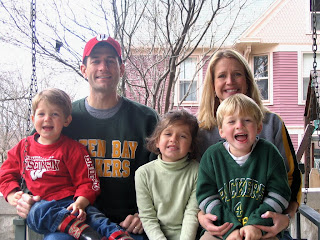On December 3, former Secretary of State Condoleezza Rice CBS's Katie Couric HBO History Makers at the Council on Foreign Relations.
TEXT TRANSCRIPT:
KATIE COURIC: On Iraq, books have been written, as you know, many, many books; documentaries have been made about how intelligence was incorrectly analyzed and cherry-picked to build an argument for war, and memos from that time do suggest that officials knew there was a small chance of actually finding weapons of mass destruction in Iraq.
CONDOLEEZZA RICE: Well, wait a second, what?
COURIC: (Chuckles.) There are -- there are some things that seem to suggest that in the buildup to the actual war that there was some doubt about that, wouldn't you say --
RICE: No. (Laughter.)
COURIC: Well --
RICE: Actually, I don't agree with that (person ?) at all.
COURIC: You don't?
RICE: No.
COURIC: Even with -- when Tony Blair met with the president in Washington --
RICE: Well, you always -- are you 100 percent sure when you're dealing with an opaque, secretive country in which there have been no inspections for years? No, you're not 100 percent sure. But the preponderance of intelligence analysis -- the preponderance of intelligence analysis from around the world was that he had had weapons of mass destruction. We knew he had used weapons of mass destruction. That was not a theoretical proposition.
COURIC: Right. That's correct.
RICE: He'd used them --
COURIC: Against the Kurds.
RICE: Against the Kurds, against the Shia and against the Iranians. So he'd used them several times. And the preponderance of intelligence was that he was reconstituting or had actually, in the intelligence estimate, reconstituted his biological and chemical capabilities.
There was some debate about how far he had gotten on the nuclear front, some saying that with foreign help it could be a year; others saying it would be several years.
So no, it's simply not the case that there was, if you're in a position of decision-making, evidence to say that it was likely that he did not have weapons of mass destruction.
Now, what we found is that he was indeed breaking out of the constraints that had been put there -- we all know the scandal of oil-for-food -- that he was not as far along in that reconstitution as the intelligence had suggested. But the idea that somehow Saddam Hussein was not pursuing or was never going to pursue weapons of mass destruction, I think, is as misplaced as an argument that he had fully reconstituted.
COURIC: Well, if there weren't, ultimately, weapons of mass destruction found, what was then the rationale for war? Without that, is there another rationale other than the world is better off without Saddam Hussein?
RICE: Well, that's a pretty good rationale. (Laughter.) But let me -- let me go back to the premise, the question, in the absence of weapons of mass destruction, what was the -- it's true that you can only -- that what you know today can affect what you know and do tomorrow, but what you know today cannot affect what you did yesterday.
So the premise that somehow, because weapons of mass destruction were not found in stockpiles, the rationale for the war was flawed leaves out the fact that at the time that we decided to go to war, we thought there were weapons of mass destruction. So let's stipulate that.
Now, we didn't worry about weapons of mass destruction particularly in the hands of Russians. The Russians had the hundred thousand -- a hundred times the weapons capability of Saddam Hussein. The problem was that Saddam Hussein had taken the world to war in really destructive wars twice, Iran and the Gulf War in '91; dragged us into conflict again in '98, as President Clinton had responded to the problem there; violated repeatedly Security Council resolutions. The efforts that we were making to keep him in his box, whether it was oil-for-food or the -- or trying to keep his air forces on the ground through flying no-fly zones -- he was shooting at our aircraft every day, he still refused to acknowledge that Kuwait was an independent country, and so on and so on.
This was the most dangerous tyrant in the middle of the Middle East, and he had repeatedly flaunted (sic) the efforts of the international community to control him after '91. And so I think there is an argument that in those circumstances, getting Saddam -- getting rid of Saddam Hussein was a very good thing.
COURIC: So absent of the presence -- or if you had known at the time that Iraq wasn't as far along with its weapons program as it ultimately turned out to be, would all of those other things you mentioned provide rationale for the war?
RICE: Katie, I'm going to repeat: What you know today can affect what you do tomorrow, but not
COURIC: No, but just put yourself back there --
RICE: I did -- I can't -- I can't --
COURIC: I mean, you're saying that that seemed like a good rationale. Do you think it is?
RICE: I can't speculate on what I would have thought if I had known. I think it's not a fruitful exercise. We knew what we knew, and we made the decisions based on that intelligence and that knowledge.
Now I still believe that even in the absence of finding weapons of mass destruction, the world and the Middle East are much better places without Saddam Hussein. And you always can know what happened as a result of what you did. What you can't know is what would have happened had you not done it.
The Iraq that we're talking about today, our debate about Iraq today -- our concerns about Iraq today are, of course, about continuing violence. But the conversation is whether Shias, Sunnis, Kurds can within their new democratic institutions form the first multi-confessional democracy in the Arab world. That's a really interesting discussion, and it's different than a discussion that we might have been having about whether or not the nuclear competition between Ahmadinejad in Iran and Saddam Hussein in Iraq is a greater danger than having taken Saddam Hussein out.
COURIC: Do you --
RICE: So I actually think that might have been where we were.
TEXT CREDIT: HBO History Makers Series with Condoleezza Rice - Council on Foreign Relations
VIDEO CREDIT: Eyeblast.tv












